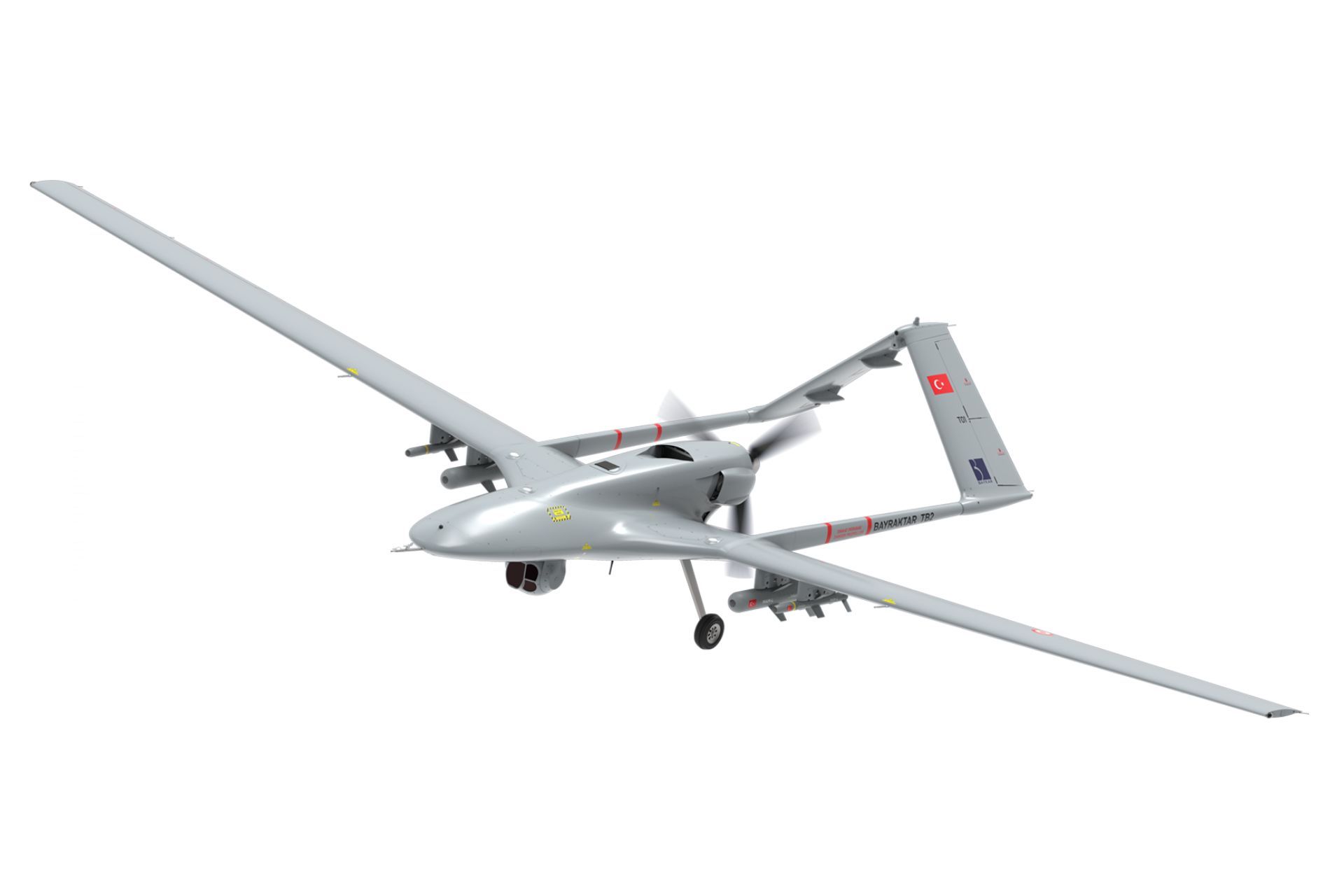Breaking News
Indonesian Military Strengthens Defense with Purchase of Bayraktar TB2 Drones.
The Indonesian Air Force, under the leadership of Chief of Staff Marshal Mohammad Tonny Harjono, announced the plan to acquire Bayraktar TB2 drones during a meeting at the Halim Perdanakusuma area in East Jakarta on Thursday, August 1, 2024. This decision follows Harjono's recent visit to Baykar Technology in Istanbul, Turkey, where he assessed the suitability and performance of the Bayraktar drones for Indonesian military operations.
Follow Army Recognition on Google News at this link

Equipped with a triple redundant avionics system, the Bayraktar TB2 allows fully autonomous taxiing, take-off, landing, and cruising (Picture source: Bayraktar)
The Bayraktar TB2, developed and manufactured by Baykar, is a tactical armed Unmanned Aerial Vehicle (UAV) system featuring an integrated design that includes the UAV platform, ground control station, ground data terminal, remote display terminal, and advanced base modules. This Medium Altitude Long Endurance (MALE) drone is capable of conducting intelligence, surveillance, reconnaissance (ISR), and armed attack missions.
Equipped with a triple redundant avionics system, the Bayraktar TB2 allows fully autonomous taxiing, take-off, landing, and cruising. Since its introduction in 2014, the Bayraktar TB2 has accumulated over 200,000 operational flight hours and is actively used by the Turkish Armed Forces, Gendarmerie, and National Police. Currently, 110 units are in service in Turkey, and the system holds records for endurance (27 hours 3 minutes) and altitude (27,030 feet) in Turkish aviation history.
The Bayraktar TB2 is notable for its operational altitude of 18,000 feet and service ceiling of 27,000 feet, with an endurance of up to 27 hours. It has a communication range of LOS, a maximum speed of 120 knots, and a payload capacity of 150 kg, including EO/IR/LD ISR radars or multi-mode AESA radar and four laser-guided smart munitions for combat.
The drone is equipped with advanced features such as fully automatic flight control, autonomous navigation independent of GPS, and multiple redundancies in sensors and systems. It has been used in combat zones in Syria, Libya, and Karabakh, demonstrating its effectiveness in neutralizing air defense systems, radars, armored vehicles, and other military targets. The Bayraktar TB2 has also been exported to countries such as Ukraine, Qatar, Libya, and Azerbaijan, proving its capabilities in various operational theaters.
Harjono confirmed that the Indonesian Air Force would purchase the Bayraktar type 2 drone, a UAV with MALE capabilities and LOS and BILOS functionalities. According to Harjono, these drones are highly suitable for surveillance and reconnaissance missions, providing a significant advantage to Indonesia's existing air defense systems.
The decision to acquire the Bayraktar drones follows Harjono's visit to Baykar Technology on June 29, 2024. During this visit, he and his delegation explored advanced drone technologies and artificial intelligence applications essential for modern military operations. Baykar Technologies, known for developing cutting-edge UAV systems, presented their drone technology in detail, including a flight demonstration of the Bayraktar Akinci, showcasing various technological simulations.
In addition to assessing the drones' capabilities, Harjono discussed increased cooperation in air defense with General Ziya Cemal Kadolu, Commander of the Turkish Air Force. These discussions aimed to strengthen bilateral military relations between Indonesia and Turkey through joint training exercises, educational exchanges, and sharing knowledge on advanced weapon systems technology.
Although Harjono did not disclose specific details regarding the number of Bayraktar drones to be purchased or their delivery timeline, he expressed confidence that this acquisition would significantly enhance Indonesia's military power in the era of high-tech weaponry. The new drones are expected to complement and improve the performance of the CH-4 and Anka drones already in service with the Indonesian Air Force.
Indonesia needs drones primarily for three reasons. First, for surveillance and reconnaissance: as an archipelago of over 17,000 islands, monitoring its vast borders is complex, and drones can help detect illegal activities such as illegal fishing and drug trafficking. Second, for national security, particularly in the South China Sea, where drones can help address internal and external threats. Finally, the acquisition of drones is part of a defense modernization effort, while also promoting international cooperation, notably through the partnership with Turkey, enabling the transfer of advanced technologies and strengthening bilateral relations.
























